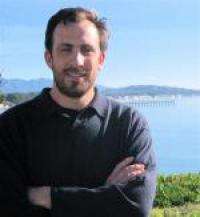Environmentalists and fishing community can both win, say experts

You can conserve fish and eat them too, according to a fisheries economist at UC Santa Barbara, along with a team of experts.
"We found that if you have the key spatial (location) information on fish, you can put the Marine Protected Areas in the right places, thus increasing conservation and making the fisheries more profitable," said Christopher Costello, economist and professor with UC Santa Barbara's Bren School of Environmental Science & Management.
Information on fish, from spawning habits to oceanographic models that show currents, gives the experts the data needed for both conservation and increased fishing, according to Costello, who published an article on the topic this week in the Proceedings of the National Academy of Sciences.
"You can have conservation and increased fisheries at the same time," he said. "That will be surprising to a lot of people. We tend to think that it's either the economy or the environment and that you can't have both. This is a case where you can have both, but you need that spatial information in order to achieve it."
Costello has served on two recent Science Advisory Teams for the development of California's Marine Protected Areas (MPAs), and is now on a third team, for the design of MPAs in Northern California. The state is in the process of developing MPAs from Point Conception south to the Mexican border. Northern MPAs will be next.
He explained that he and his team of co-authors studied the location of fish by looking at what ecologists call "sources" and "sinks." In source areas, the ocean is very productive and lots of fish spawn there. Larvae are produced and they are swept over to the sink and never leave.
"What you'd really like to do is close the source to fishing and only fish in the sink," said Costello. "It turns out you get a much higher economic value and much better conservation when you do that. But if you don't know where the sources and sinks are, you can't do that, so that is where the information comes in."
He explained that in Southern California the experts have that information and are using it to set up the new MPAs. "However, in many parts of the world, we don't yet have the information," said Costello. "Until this article came out, there was a vague idea that yes, we want better information -- but it wasn't clear why or how we would use it."
The article asserts, "spatial information has the potential to change management approaches."
Provided by University of California - Santa Barbara

















